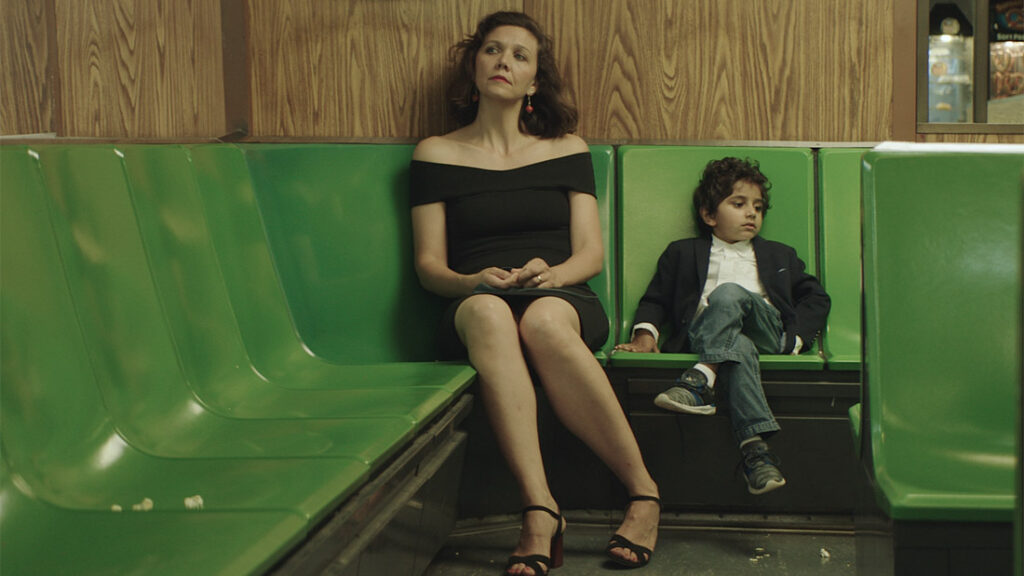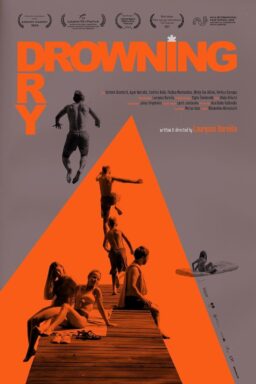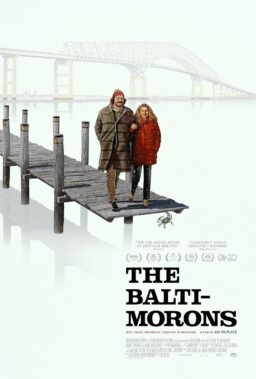Women aren’t afforded the same chances to play anti-hero roles as men. The few that do really stick out, like Charlize Theron in “Young Adult” or Cate Blanchett in “Blue Jasmine.” Those characters are more complicated than fitting them into a “good” or “bad” category—they’re not easy to love, but they’re not monsters. Now, it’s Maggie Gyllenhaal’s turn to play our new problematic favorite as a troubled kindergarten teacher from Staten Island who becomes professionally jealous of one of her young students after discovering he has a talent for poetry.
Director Sara Colangelo had to keep her troubled character at the boundary of “just sympathetic enough” in order to make the story work. She was intrigued by the story, and the opportunity to discuss topics like America’s attitude towards art and motherhood. At Sundance, she discussed how she shaped the main character with Maggie Gyllenhaal and what she hopes is in store for women in Hollywood after #MeToo.
How did you come across the material?
It was really producers Talia [Kleinhendler] and Osnat [Handelsman-Keren]—they had produced the original and they had wanted to do an American remake. They approached me and pitched the project to me. It was really interesting, a kindergarten teacher and poetry and a woman’s obsession. At the time, the original Israeli film was playing at Lincoln Center, so I saw it, and I just really fell in love with it. I thought it had such wonderful bones, and I thought that I could really make something different. What I really wanted to do, was anchor it from a woman’s point of view and really use it as an opportunity to talk about art in the United States, really make it an American story. I don’t know if you’ve seen the original but Nadav Lapid is just an incredible filmmaker. He’s really taking on a lot of different issues like masculinity in Israel, art in a country at war, and what that means. I really wanted to do something completely different. So, I never would have thought that my second film would be a remake but I felt that I could really recreate something here.
And you took your time looking around for stories and things like that?
You don’t see a lot of scripts that showcase interesting female characters. Usually, I have to write my own female characters but in this case, I thought it was a really challenging character. It was an opportunity to create a female anti-hero, and somebody that isn’t perfectly likable. I think it’s high time that we see stories like that. For me, there’s something about this last election that [made] women’s likability an issue. I like the idea of having a character that isn’t this kind of lovely, ethically perfect person.
There were moments when I was watching the film, like when her character was touching the kid’s hair, like, for just a little too long—little creepy kinda moments that made your head tilt. Did you work with Maggie to do that in performance? Was she doing it on her own?
I think in the beginning, she’s kind of, you know, very, kind of, encouragingly, you know, touching the child’s back. She was a tender and good teacher. She almost starts to treat him like a son, touching his head in a way, that maybe, is too familiar. Certainly, we talked about that. I think some of it is also I let Maggie do her thing as well, and as the character is unraveling, Maggie decided to do these things and it worked and [was] organic to what her character is going through emotionally and psychologically. We crafted an entire arc for her and really talked about what this unraveling would look like and feel like. Maggie’s been amazing to work with because she brings her own idiosyncrasies and an incredible level of detail to the character that wasn’t necessarily on the page. She keeps me on my toes, and it’s so gratifying to see the character have a dimension that you didn’t think was necessarily possible.
You kind of touched on this a little bit, but I wanted to ask you, there’s so much focus now on women filmmakers that I don’t think has happened before. What are you hoping, out of all these conversations that are happening in Hollywood? What are you hoping will be the result?
Well, two things. One that we’re seeing a lot of filmmaking by women at the indie level and with documentaries, but there’s a real vast underrepresentation at the studio level. That’s a problem we have to change. I think we’ve all realized, both with the sexual harassment and power disparity, is that men really control the industry. We have to change not only that, but we have to change the way we do business. There’s an ancient ritual, boy’s club aspect that we have to recognize and have to dismantle. It feels violent, hard and painful at moments, but it’s gotta happen and men and women have to do it together. So, I hope to see that, and I hope to see more films at the studio level being directed by women.
Secondly, I would love to see more films like this, that have really challenging and interesting female characters. I want to see films that I can really identify with in a way that I don’t, yet.
I’m really intrigued because there’s a panel on women, and I got this tip sheet from Sundance on how many women filmmakers there were in each competition, and I don’t think I’ve ever gotten that before. Have you been able to feel the difference of all this awareness and attention on women filmmakers?
Yeah, I do feel the difference and I think that it’s good that Sundance is deliberately thinking about those questions. They’ve really been a community that has really nurtured women, and they understand the underrepresentation. They were really part of that Annenberg study, and I really credit them for that. It’s important that they’re spearheading it. Sundance is a really beautiful, nurturing community, but now the rest of the industry has to start to catch up and put themselves under the magnifying glass.
It’s so rare to see an unlikable character like Maggie’s on the big screen at all.
Yeah. Not that they have to be, like, in this case, she’s like an ethically—she’s complicated. It’s a very morally ambiguous character, but I think women approach her in a particular way, that perhaps men don’t, and that’s interesting to me.
I’m noticing that in conversations.
I think artists actually approach the film in a way that’s different too. Because ultimately, I think this is a film about an artist that wants to be heard, and wants to be understood and I think the film asks, ‘who gets to decide what art is’ and ‘who gets to lavish praise onto whom?’ We made Lisa’s poetry, and I don’t know if you think if Lisa’s poetry is good or bad, but we tried to make it interesting so that you could say, ‘well, wait a second, is the child’s poetry actually better than hers? Is hers interesting? Or is just, this teacher that gets to decide?’”
What’s the leap from good to great?
Maggie and I talked about this a lot, but for us, this isn’t a story about a boy genius. We’ve seen that film before. There’s a whole genre of prodigy movies, and this isn’t that. This is really a film about a woman who is an artist, and who is hungry to create and the only way that she could really do it, is through this boy. She makes a lot of missteps and does it in a completely wrong way, but it’s a woman who is trying to be awakened in the world.
I didn’t think about the artist angle, I thought of is as sort of a critique on anti-intellectualism. Like, no one in her family really understands what she’s going for. She yells about how ‘nobody reads in this house,’ sort of like the frustrated intellectual right now in America.
Absolutely. I think it’s about our society too. Where does art fit into a world of gadgets, in a world of overseas wars and in this kind of fast paced world that we’re in? Where does poetry fit in? Where does art fit in? Do we have time for it? How do we connect with our five senses? I think, hopefully, these are little themes and issues that the film brings up.
And I gotta ask, why is the story set in Staten Island?
I just thought it’d be interesting. I really wanted to set it in New York City, and I thought, if she’s from one of the outer boroughs, it has to go into Manhattan. I thought the ferry was so visually interesting but if she has to travel into Manhattan, that would be an interesting visual metaphor. Manhattan is this Emerald City, where she’s taking these poetry classes, and it’s the bastion of culture that she has to travel to get to. If there’s this physical distance, as well as an emotional distance, between these two worlds it’s interesting.












